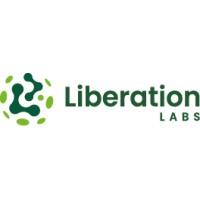The Rise of AgriFoodTech: A New Era of Sustainable Innovation
October 20, 2024, 3:57 am
The world of AgriFoodTech is buzzing. It’s a landscape ripe with innovation, where sustainability meets technology. Companies are racing to transform how we produce and consume food. This week, the headlines overflowed with exciting developments. From chocolate without cocoa to advanced fermentation facilities, the future of food is unfolding.
Blue Stripes, a startup focused on cacao fruit, raised $20 million in a Series B funding round. Their mission? To create a chocolate alternative that doesn’t rely on traditional cocoa crops. As climate change threatens cocoa production, this innovation could be a game-changer. Imagine a world where chocolate is not just a treat but a sustainable choice.
Nukoko is another player in this space. They’re working on cocoa-free chocolate, aiming for a 2025 market launch. This is not just about taste; it’s about resilience. The cocoa industry faces challenges, and these startups are paving the way for alternatives. Their efforts highlight a growing trend: the shift towards sustainable ingredients.
Voyage Foods is also making waves. They recently opened a $25 million facility to produce cocoa-free chocolate at scale. Their goal? To meet the rising demand for sustainable food products. The facility is set to churn out 10,000 metric tons annually. That’s a lot of chocolate, minus the environmental impact.
Meanwhile, OroraTech is tackling another pressing issue: wildfires. They’ve secured €25 million to enhance their satellite-based wildfire detection system. With climate change increasing the frequency of wildfires, this technology could save lives and property. Imagine satellites acting as vigilant guardians, alerting first responders before disaster strikes.
In the realm of fermentation, Liberation Labs is making strides. They raised $3.5 million to advance their precision fermentation facility in Richmond, Indiana. This facility will produce alternative proteins and other sustainable products. The company has ambitious plans, aiming for a fermentation capacity of 600,000 liters. This is just the beginning. They’ve already signed letters of intent with potential customers, indicating strong demand.
The U.S. Department of Defense is also investing in this sector. Liberation Labs received a $1.39 million award to study the feasibility of a larger plant. This could lead to a $100 million investment in bioindustrial manufacturing. The military sees the potential in biomanufacturing for food, fuel, and materials. It’s a nod to the importance of secure supply chains in a volatile world.
Agtonomy, another innovative company, closed a $32.8 million Series A round. They’re focused on AI-driven automation in agriculture. This technology could revolutionize farming, making it more efficient and less labor-intensive. Picture fields tended by autonomous machines, optimizing every inch of land.
The funding landscape is bustling. Companies like Biotalys and CorePower Ocean are also securing investments. Biotalys raised €15 million for its sustainable agriculture solutions. CorePower Ocean, focused on wave energy, secured €32 million. These investments reflect a broader trend: the push for sustainable practices across industries.
The collaboration between Starship and Bolt is another exciting development. They’re launching robot-powered grocery delivery in Estonia. This partnership showcases the potential of automation in everyday life. Imagine receiving groceries delivered by robots, making life a little easier and more efficient.
The Better Meat Co. is expanding its reach into Asia. They’ve received approval for their mycoprotein product in Singapore. This is a significant step in bringing sustainable protein alternatives to new markets. The demand for plant-based options is growing, and companies are responding.
As the AgriFoodTech sector evolves, it’s clear that innovation is key. Startups are not just creating products; they’re reshaping the food landscape. The focus on sustainability is paramount. Consumers are increasingly aware of their choices. They want food that is not only delicious but also environmentally friendly.
The challenges are significant. Climate change, resource scarcity, and population growth are pressing issues. However, the response from the AgriFoodTech community is encouraging. Companies are harnessing technology to address these challenges head-on. They’re not just dreaming of a better future; they’re building it.
In conclusion, the AgriFoodTech sector is at a pivotal moment. With significant investments and groundbreaking innovations, the future looks bright. The focus on sustainability is not just a trend; it’s a necessity. As we move forward, the collaboration between technology and agriculture will be crucial. The journey is just beginning, and the possibilities are endless. The future of food is here, and it’s more exciting than ever.
Blue Stripes, a startup focused on cacao fruit, raised $20 million in a Series B funding round. Their mission? To create a chocolate alternative that doesn’t rely on traditional cocoa crops. As climate change threatens cocoa production, this innovation could be a game-changer. Imagine a world where chocolate is not just a treat but a sustainable choice.
Nukoko is another player in this space. They’re working on cocoa-free chocolate, aiming for a 2025 market launch. This is not just about taste; it’s about resilience. The cocoa industry faces challenges, and these startups are paving the way for alternatives. Their efforts highlight a growing trend: the shift towards sustainable ingredients.
Voyage Foods is also making waves. They recently opened a $25 million facility to produce cocoa-free chocolate at scale. Their goal? To meet the rising demand for sustainable food products. The facility is set to churn out 10,000 metric tons annually. That’s a lot of chocolate, minus the environmental impact.
Meanwhile, OroraTech is tackling another pressing issue: wildfires. They’ve secured €25 million to enhance their satellite-based wildfire detection system. With climate change increasing the frequency of wildfires, this technology could save lives and property. Imagine satellites acting as vigilant guardians, alerting first responders before disaster strikes.
In the realm of fermentation, Liberation Labs is making strides. They raised $3.5 million to advance their precision fermentation facility in Richmond, Indiana. This facility will produce alternative proteins and other sustainable products. The company has ambitious plans, aiming for a fermentation capacity of 600,000 liters. This is just the beginning. They’ve already signed letters of intent with potential customers, indicating strong demand.
The U.S. Department of Defense is also investing in this sector. Liberation Labs received a $1.39 million award to study the feasibility of a larger plant. This could lead to a $100 million investment in bioindustrial manufacturing. The military sees the potential in biomanufacturing for food, fuel, and materials. It’s a nod to the importance of secure supply chains in a volatile world.
Agtonomy, another innovative company, closed a $32.8 million Series A round. They’re focused on AI-driven automation in agriculture. This technology could revolutionize farming, making it more efficient and less labor-intensive. Picture fields tended by autonomous machines, optimizing every inch of land.
The funding landscape is bustling. Companies like Biotalys and CorePower Ocean are also securing investments. Biotalys raised €15 million for its sustainable agriculture solutions. CorePower Ocean, focused on wave energy, secured €32 million. These investments reflect a broader trend: the push for sustainable practices across industries.
The collaboration between Starship and Bolt is another exciting development. They’re launching robot-powered grocery delivery in Estonia. This partnership showcases the potential of automation in everyday life. Imagine receiving groceries delivered by robots, making life a little easier and more efficient.
The Better Meat Co. is expanding its reach into Asia. They’ve received approval for their mycoprotein product in Singapore. This is a significant step in bringing sustainable protein alternatives to new markets. The demand for plant-based options is growing, and companies are responding.
As the AgriFoodTech sector evolves, it’s clear that innovation is key. Startups are not just creating products; they’re reshaping the food landscape. The focus on sustainability is paramount. Consumers are increasingly aware of their choices. They want food that is not only delicious but also environmentally friendly.
The challenges are significant. Climate change, resource scarcity, and population growth are pressing issues. However, the response from the AgriFoodTech community is encouraging. Companies are harnessing technology to address these challenges head-on. They’re not just dreaming of a better future; they’re building it.
In conclusion, the AgriFoodTech sector is at a pivotal moment. With significant investments and groundbreaking innovations, the future looks bright. The focus on sustainability is not just a trend; it’s a necessity. As we move forward, the collaboration between technology and agriculture will be crucial. The journey is just beginning, and the possibilities are endless. The future of food is here, and it’s more exciting than ever.


